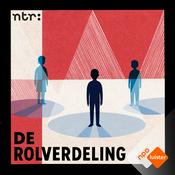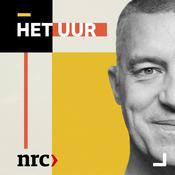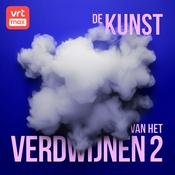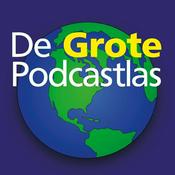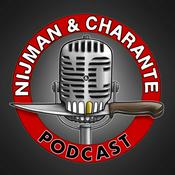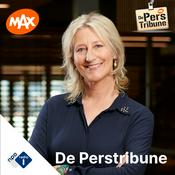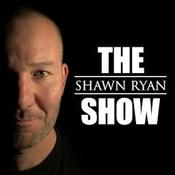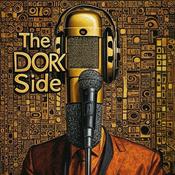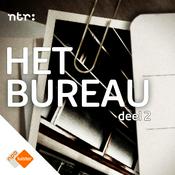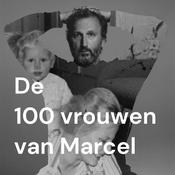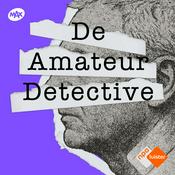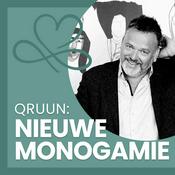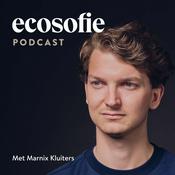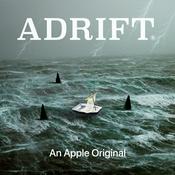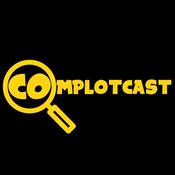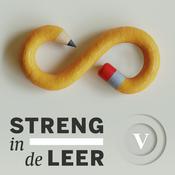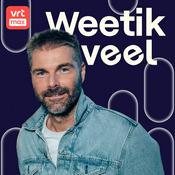14 afleveringen
Dan Bricklin: Lessons from Building the First Killer App | Learning from Machine Learning #14
17-10-2025 | 1 u. 13 Min.On this episode of Learning from Machine Learning, I had the pleasure of speaking with Dan Bricklin, co-creator of VisiCalc - the first electronic spreadsheet and the killer app that launched the personal computer revolution. We explored what five decades of platform shifts teach us about today's AI moment.
Dan's framework is simple but powerful: breakthrough innovations must be 100 times better, not incrementally better. The same questions he asked about spreadsheets apply to AI today: What is this genuinely better at? What does it enable? What trade-offs will people accept? Does it pay for itself immediately?
Most importantly, Dan reminded us that we never fully know the impact of what we build. Whether it's a mother whose daughter with cerebral palsy can finally do her own homework, or a couple who met learning spreadsheets. The moments worth remembering aren't the product launches or exits. They're the unexpected times when your work changes someone's life in ways you never imagined.
Substack
Youtube
---
Chapters
00:00:00 Start
00:00:49 Early Fascination with Technology
00:02:49 From MIT to Mainframes: A Journey Through Computing
00:09:35 The Birth of VisiCalc: Revolutionizing Spreadsheets
00:13:41 Interactive Computing: The Impact of VisiCalc
00:16:46 Understanding Killer Apps: The Evolution of Software
00:23:05 Challenges in Development: Creating VisiCalc
00:30:12 VisiCalc's Legacy: The Precursor to Modern Spreadsheets
00:36:01 App Customization
00:40:31 The Evolution of User Interfaces and Applications
00:43:11 Understanding AI: Hype vs. Reality
00:48:11 Learning to Use New Technologies Effectively
00:56:51 The Importance of User-Centric Design
01:01:10 Career Reflections and Life Lessons
01:05:18 The Impact of Technology on Life and Relationships
---
A machine learning podcast that explores more than just algorithms and data: Life lessons from the experts. Welcome to "Learning from Machine Learning," a podcast about the insights gained from a career in the field of Machine Learning and Data Science. In each episode, industry experts, entrepreneurs and practitioners will share their experiences and advice on what it takes to succeed in this rapidly-evolving field.
---
Resources to learn more about Learning from Machine Learninghttps://www.linkedin.com/company/learning-from-machine-learning
https://www.linkedin.com/in/sethplevine/
https://medium.com/@levine.seth.p
https://mindfulmachines.substack.com/Lukas Biewald | You think you're late, but you're early | Learning from Machine Learning #13
01-7-2025 | 1 u. 4 Min.On this episode of Learning from Machine Learning, I had the privilege of speaking with Lukas Biewald, co-founder and CEO of Weights & Biases. We traced his journey from programming games as a kid to building one of the most essential tools in AI development today. Lukas's career demonstrates that conviction often matters more than consensus—from surviving the AI winter in the mid-2000s when he was coached to remove "AI" from investor pitches, to the AlphaGo moment that changed everything and led him to take an unpaid internship at OpenAI in his thirties.
Lukas's philosophy on "automating the automation" reveals why AI developers have become the most powerful people within organizations—they're a smaller market but wield disproportionate influence. He shares his view that "if you zoom out, AI is so underhyped, you can't hype it enough." The recursive potential of machines improving machines is barely understood, yet it represents "the most powerful technology you could possibly build."
Most importantly, Lukas's philosophy that "feedback loops are your units of work" transforms how we approach both machine learning and life. He explains the necessity to stay technical as a leader: "If you're going to work for me, you better be able to do the IC job. And I do not know how companies function without that mindset." His advice to his younger self cuts through common doubts in emerging technologies: "you think you're late, but you're early." In a world racing towards progress at all costs, this reminder couldn't be more relevant.
Thank you for listening. Be sure to subscribe and share with a friend or colleague.
---
Available on all podcast platforms:
https://rss.com/podcasts/learning-from-machine-learning/
Available on Youtube:
https://www.youtube.com/@learningfrommachinelearning
Available on Substack:
https://mindfulmachines.substack.com/
---
Chapters
00:00 Open
00:46 Early Fascination with AI
03:57 Founding CrowdFlower During AI Winter
09:22 The AlphaGo Awakening
16:02 Birth of Weights & Biases
23:50 The LLM Revolution's Impact
29:12 CoreWeave Acquisition & Future Vision
32:56 The Entrepreneurship Philosophy
37:29 Technical Leadership Philosophy
49:01 The Future of Software Development
53:07 Leadership Lessons & Career Advice
1:00:38 Life Lessons from Machine Learning
1:01:46 Closing Thoughts & Gratitude
---
References
Gödel, Escher, Bach: An Eternal Golden Braid
Genius Makers
Weights & Biases
CrowdFlower/Figure 8 (now part of Appen)
OpenAI
CoreWeave
Scale AI
GitHub
Google
Stanford University
Y Combinator
Daphne Koller - Stanford Professor, Co-founder of Coursera
Lee Sedol - Professional Go player defeated by AlphaGo
---
A machine learning podcast that explores more than just algorithms and data: Life lessons from the experts. Welcome to "Learning from Machine Learning," a podcast about the insights gained from a career in the field of Machine Learning and Data Science. In each episode, industry experts, entrepreneurs and practitioners will share their experiences and advice on what it takes to succeed in this rapidly-evolving field.Maxime Labonne: Designing beyond Transformers | Learning from Machine Learning #12
28-5-2025 | 1 u. 3 Min.On this episode of Learning from Machine Learning, I had the privilege of speaking with Maxime Labonne, Head of Post-Training at Liquid AI. We traced his journey from cybersecurity to the cutting edge of model architecture. Maxime shared how the future of AI isn't just about making models bigger—it's about making them smarter and more efficient.
Maxime's work demonstrates that challenging established paradigms requires taking steps backward to leap forward. His framework for data quality—accuracy, diversity, and complexity—offers a blueprint for anyone working with machine learning systems.
Most importantly, Maxime's perspective on learning itself—treating knowledge acquisition like training data exposure—reminds us that growth comes from diverse, high-quality experiences across different contexts. Whether you're training a model or developing yourself, the principles remain remarkably similar.
Thank you for listening. Be sure to subscribe and share with a friend or colleague. Until next time... keep on learning.
00:46 Introduction and Maxime's Background
01:47 Journey from Cybersecurity to Machine Learning
03:30 The Fascination with AI and Cyber Attacks
06:15 Transitioning to Post-Training at Liquid AI
08:17 Liquid AI's Vision and Mission
10:08 Challenges of Deploying AI on Edge Devices
13:06 Techniques for Efficient Edge Model Training
15:44 The State of AI Hype and Reality
19:19 Evaluating AI Models and Benchmarks
24:09 Future of AI Architectures Beyond Transformers
31:05 Innovations in Model Architecture
36:28 The Importance of Iteration in AI Development
39:24 Understanding State Space Models
42:53 Advice for Aspiring Machine Learning Professionals
48:53 The Quest for Quality Data
52:56 Integrating User Feedback into AI Systems
58:13 Lessons from Machine Learning for LifeAman Khan: Arize, Evaluating AI, Designing for Non-Determinism | Learning from Machine Learning #11
29-4-2025 | 1 u. 7 Min.On this episode of Learning from Machine Learning, I had the privilege of speaking with Aman Khan, Head of Product at Arize AI. Aman shared how evaluating AI systems isn't just a step in the process—it's a machine learning challenge in of itself. Drawing powerful analogies between mechanical engineering and AI, he explained, "Instead of tolerances in manufacturing, you're designing for non-determinism," reminding us that complexity often breeds opportunity.
Aman's journey from self-driving cars to ML evaluation tools highlights the critical importance of robust systems that can handle failure. He encourages teams to clearly define outcomes, break down complex systems, and build evaluations into every step of the development pipeline.
Most importantly, Aman's insights remind us that machine learning—much like life—is less deterministic and more probabilistic, encouraging us to question how we deal with the uncertainty in our own lives.
Thank you for listening. Be sure to subscribe and share with a friend or colleague . Until next time... keep on learning.
Available on Youtube: https://youtu.be/v0eTTn7ZPEc
Available on Substack: https://mindfulmachines.substack.com/p/aman-khan-arize-evaluating-ai-designing?r=eykwyLeland McInnes: UMAP, HDBSCAN & the Geometry of Data | Learning from Machine Learning #10
25-10-2024 | 55 Min.In this episode of Learning from Machine Learning, we explore the intersection of pure mathematics and modern data science with Leland McInnes, the mind behind an ecosystem of tools for unsupervised learning including UMAP, HDBSCAN, PyNN Descent and DataMapPlot. As a researcher at the Tutte Institute for Mathematics and Computing, Leland has fundamentally shaped how we approach and understand complex data.
Leland views data through a unique geometric lens, drawing from his background in algebraic topology to uncover hidden patterns and relationships within complex datasets. This perspective led to the creation of UMAP, a breakthrough in dimensionality reduction that preserves both local and global data structure to allow for incredible visualizations and clustering. Similarly, his clustering algorithm HDBSCAN tackles the messy reality of real-world data, handling varying densities and noise with remarkable effectiveness.
But perhaps what's most striking about Leland isn't just his technical achievements – it's his philosophy toward algorithm development. He champions the concept of "decomposing black box algorithms," advocating for transparency and understanding over blind implementation. By breaking down complex algorithms into their fundamental components, Leland argues, we gain the power to adapt and innovate rather than simply consume.
For those entering the field, Leland offers poignant advice: resist the urge to chase the hype. Instead, find your unique angle, even if it seems unconventional. His own journey – applying concepts from algebraic topology and fuzzy simplicial sets to data science – demonstrates how breakthrough innovations often emerge from unexpected connections.
Throughout our conversation, Leland's passion for knowledge and commitment to understanding shine through. His approach reminds us that the most powerful advances in data science often come not from following the crowd, but from diving deep into fundamentals and drawing connections across disciplines.
There's immense value in understanding the tools you use, questioning established approaches, and bringing your unique perspective to the field. As Leland shows us, sometimes the most significant breakthroughs come from seeing familiar problems through a new lens.
Resources for Leland McInnes
Leland’s Github
UMAP
HDBSCAN
PyNN Descent
DataMapPlot
EVoC
References
Maarten GrootendorstLearning from Machine Learning Episode 1
Vincent Warmerdam - CalmcodeLearning from Machine Learning Episode 2
Matt Rocklin
Emily Riehl - Category Theory in Context
Lorena Barba
David Spivak - Fuzzy Simplicial Sets
Improving Mapper’s Robustness by Varying Resolution According to Lens-Space Density
Learning from Machine Learning
Youtube
https://mindfulmachines.substack.com/
Meer Maatschappij & cultuur podcasts
Trending Maatschappij & cultuur -podcasts
Over Learning from Machine Learning
A machine learning podcast that explores more than just algorithms and data: Life lessons from the experts. Welcome to "Learning from Machine Learning," a podcast about the insights gained from a career in the field of Machine Learning and Data Science. In each episode, industry experts, entrepreneurs and practitioners will share their experiences and advice on what it takes to succeed in this rapidly-evolving field.But this podcast is not just about the technical aspects of ML. It will also delve into the ways machine learning is changing the world around us. From the implications of artificial intelligence to the ways machine learning is being applied in various sectors, a wide range of topics will be covered that are relevant to anyone interested in the intersection of technology and society.All interviews available on YouTube: Learning from Machine Learning Substack: Mindful Machines
Podcast websiteLuister naar Learning from Machine Learning, Nooit meer slapen en vele andere podcasts van over de hele wereld met de radio.net-app
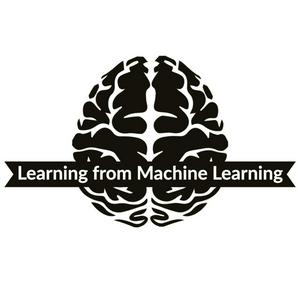
Ontvang de gratis radio.net app
- Zenders en podcasts om te bookmarken
- Streamen via Wi-Fi of Bluetooth
- Ondersteunt Carplay & Android Auto
- Veel andere app-functies
Ontvang de gratis radio.net app
- Zenders en podcasts om te bookmarken
- Streamen via Wi-Fi of Bluetooth
- Ondersteunt Carplay & Android Auto
- Veel andere app-functies


Learning from Machine Learning
Scan de code,
download de app,
luisteren.
download de app,
luisteren.



